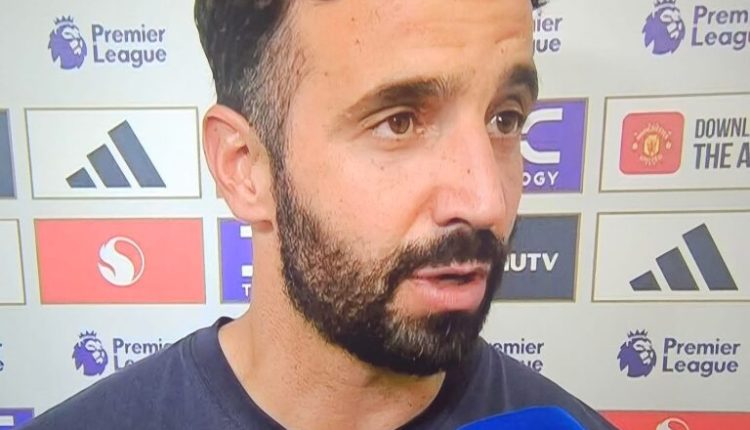Cunha vs. Amorim: Player’s Outburst Sparks Rift Over Tactical Decisions
“I really don’t understand why he insists on putting him in that role.”
Those remarks by Matheus Cunha have reverberated throughout the football world, as the attacker openly criticized Rúben Amorim’s strategic choices. What makes this moment even more notable is that Cunha is said to have gone to the coach in private beforehand, urging him not to place a teammate in that spot. Rather than taking the suggestion into account, Amorim followed through with his plan, a decision that not only left Cunha frustrated but also paved the way for this very public dispute. For a player to directly oppose a manager is always a gamble, but it also highlights just how deeply Cunha feels about the matter.
This disagreement has ignited discussions about whether Amorim’s firm tactical philosophy is beginning to lose support among some squad members. Managers frequently ask for loyalty and compliance, but players—especially seasoned ones like Cunha—also bring a sense of what functions best on the field. By dismissing his player’s input, Amorim may have unintentionally stirred friction that extends beyond a single call. When grievances like this come to light, it often signals that internal dialogue within the group might not be as strong as it appears externally. Supporters and analysts alike are starting to wonder whether this is just an isolated incident or an indication of a deeper issue inside the locker room.
For Cunha, taking such a strong public stance comes with potential ramifications. On one side, it reflects leadership and a readiness to advocate for what he thinks benefits the team. On the other side, it could be seen as challenging the coach’s leadership, something that could quickly lead to disciplinary repercussions or tense dynamics. If Amorim sees this as a threat to his authority, the consequences could influence not just Cunha’s position within the team, but also the squad’s overall cohesion. Team unity is crucial in football, and any visible fracture can jeopardize that balance—especially if others on the team begin to quietly share Cunha’s viewpoint.
The current dilemma is whether this dispute will die down or evolve into something more serious. Football history contains countless instances where disputes between players and coaches either led to healing that fortified the group or conflicts that disrupted entire campaigns. With tensions high and supporters already talking about the situation, Amorim and Cunha are facing a decisive juncture. How they manage this strain—whether by honest dialogue, finding middle ground, or sticking to their positions—will influence not only their rapport but also the future of the squad in the coming weeks.
